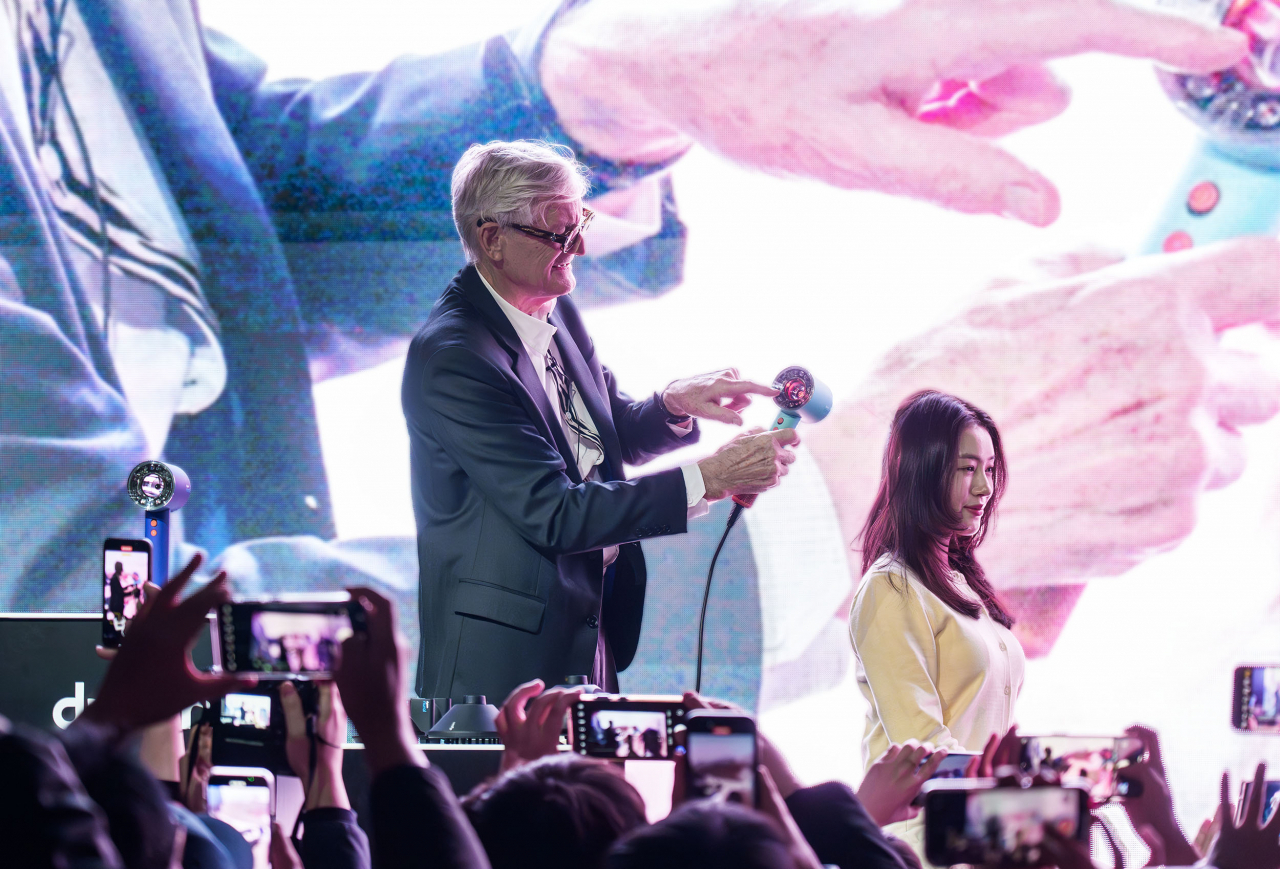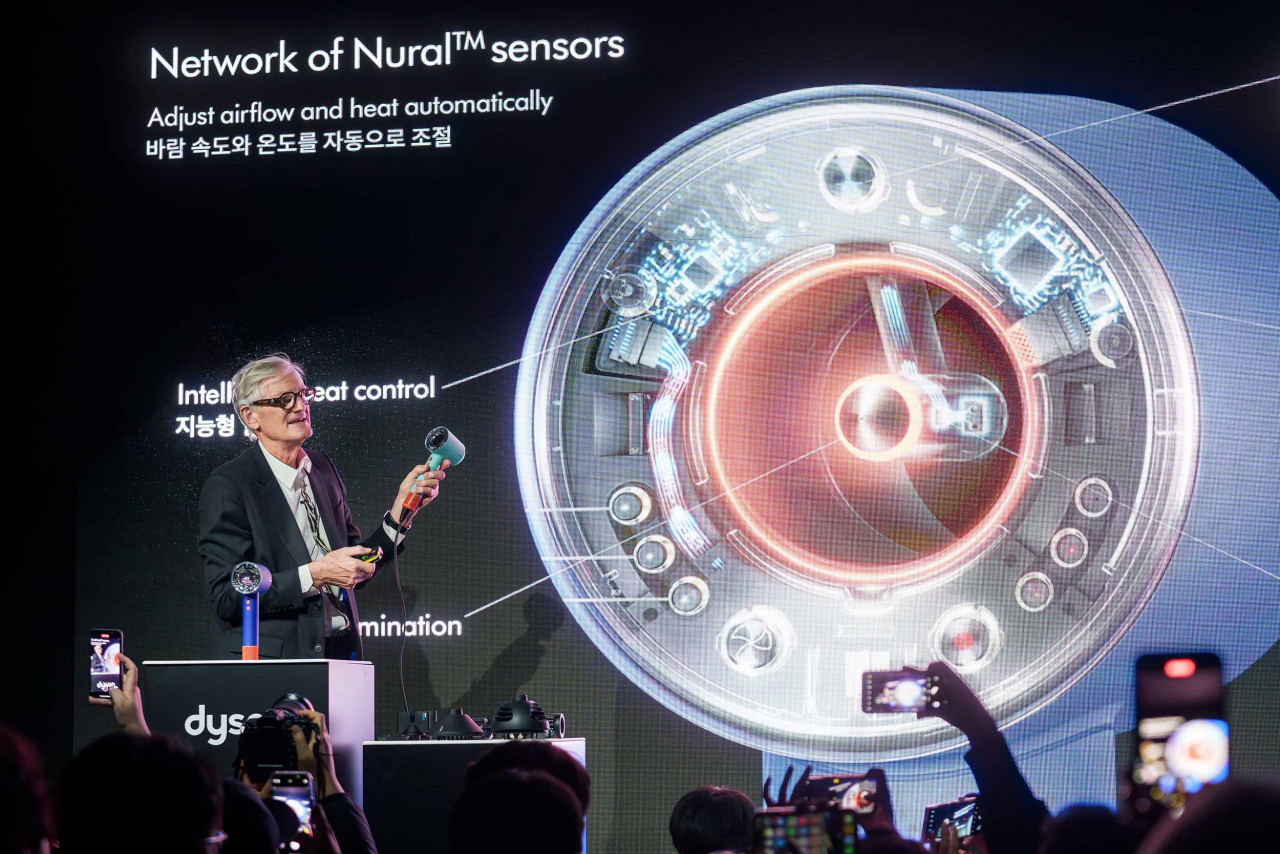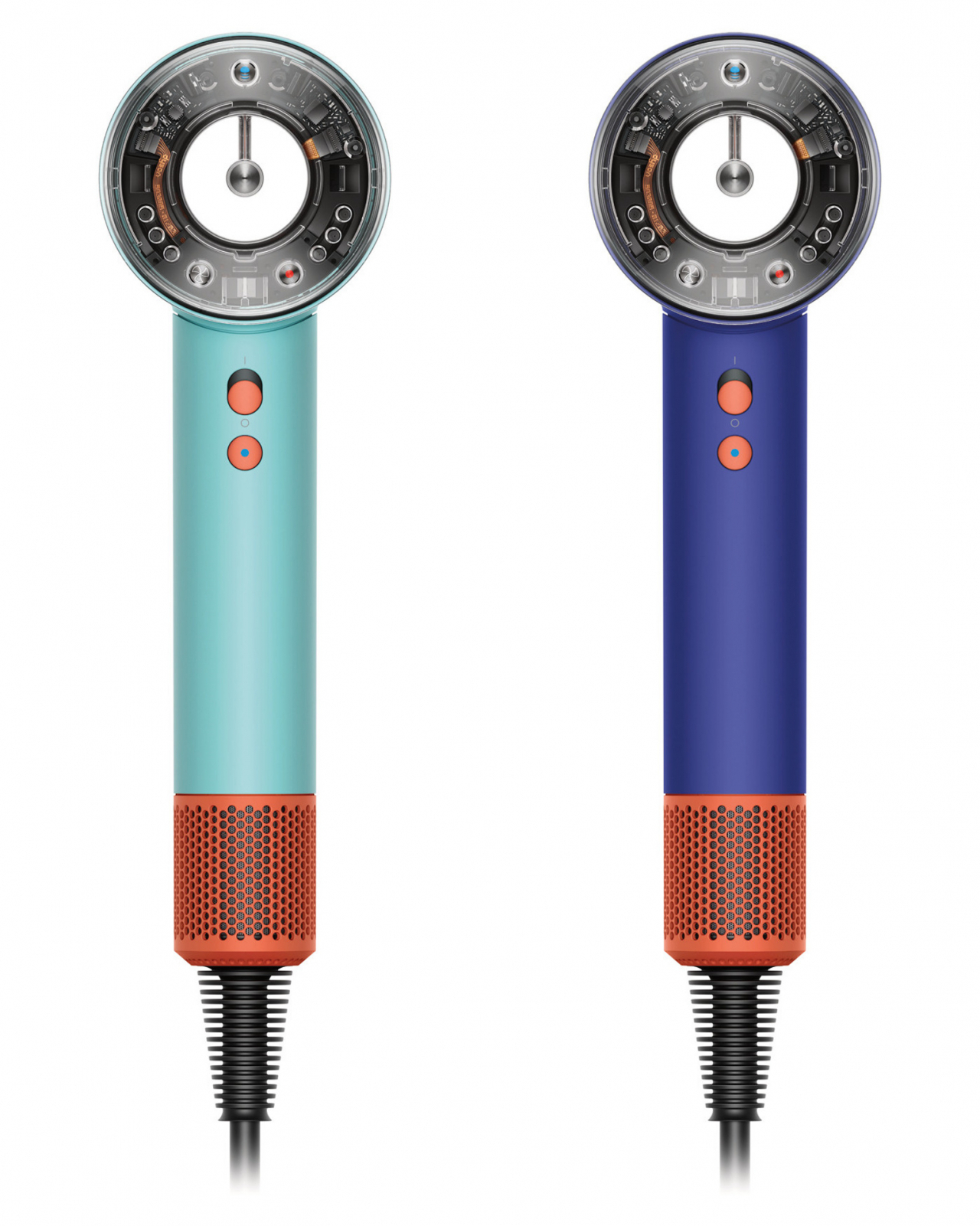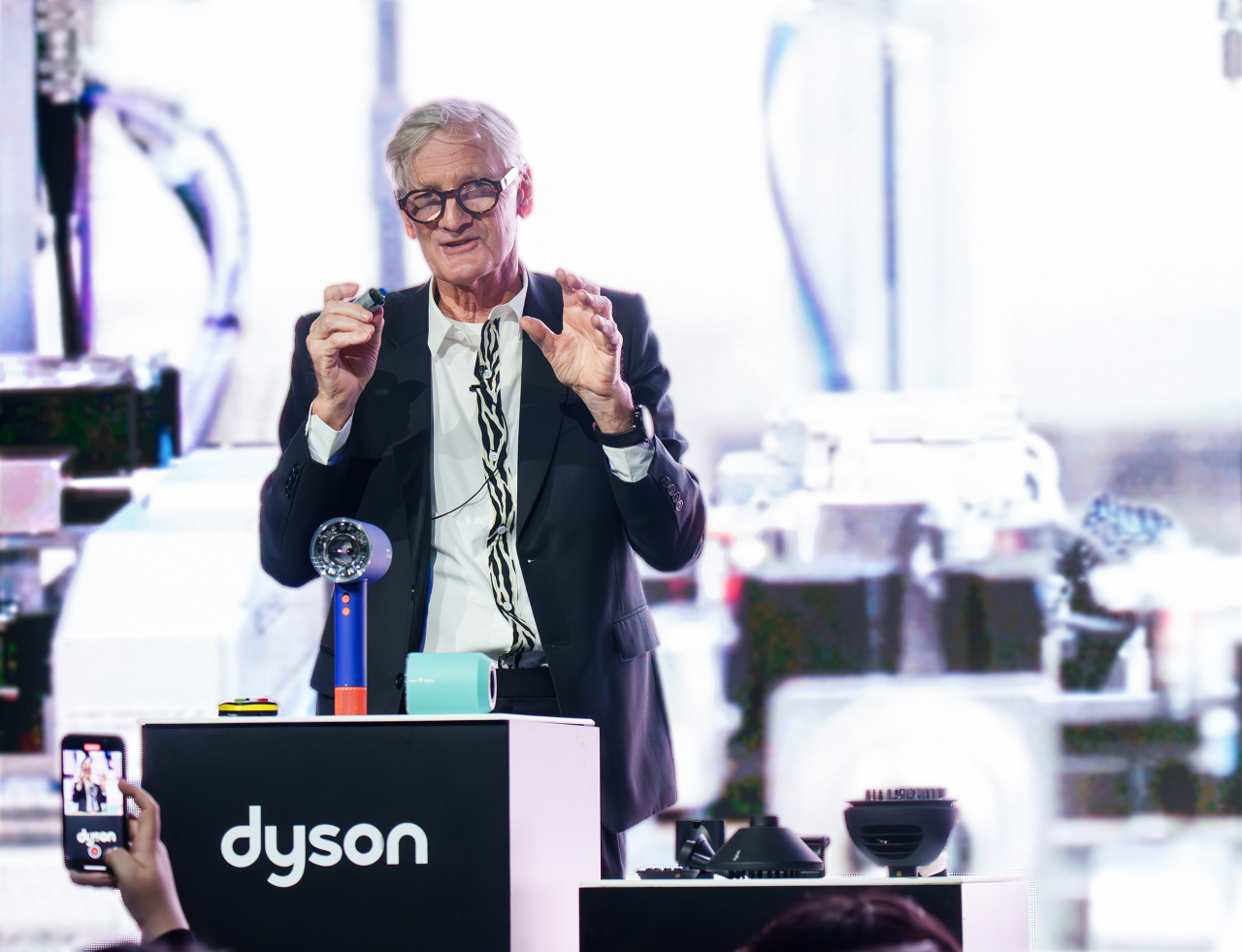Dyson founder visits Seoul for global debut of new hair dryer
Dyson Supersonic Nural adjusts heat to better protect scalp, hair
Published : 2024-03-18 15:44:06

James Dyson, the founder and senior engineer of UK home appliance giant Dyson, visited Seoul on Monday to unveil the company’s new hair dryer, the Dyson Supersonic Nural.
The new hair dryer, which is designed to better protect hair and the scalp from heat, made its global debut in Korea, one of the brand’s top-selling markets.
The 76-year-old Dyson founder showed his appreciation for the local market as he took the stage to introduce the new machine in person.
“What we are trying to do is keep the moisture in both the hair and the scalp. An unhealthy scalp is not only unsightly and itchy, but it means the hair is going to be unhealthy as well," Dyson said during the unveiling event held in Seongsu-dong, eastern Seoul.
"So the aim with all Dyson hair machines is to keep the temperature down on the hair and scalp."

The new Dyson Supersonic Nural hair dryer uses infrared light technology dubbed, "Time of Flight," to measure the distance between the user's head and the device, and automatically adjusts the heat temperature to lessen the damage to the scalp and hair, according to Dyson.
When the "scalp protect" mode is turned on, the LED lighting on the device turns red to signal that the device is at its strongest heat setting of three.
As the device gets closer to the hair and scalp of the user, the light turns to orange and then to yellow to inform the user that the heat has been lowered to 55 degrees Celsius -- the optimum temperature for scalp comfort and drying speed, according to Dyson.
Other new features include the “pause detect” mode, which senses when the device is put down and automatically turns off the heat and motor to save energy. When the user picks up the device again, it turns back on to full operation.
Dyson also included attachment learning technology for its upgraded attachment nozzles. Depending on the nozzle type -- gentle air, smoothing, styling concentrator -- the device adjusts the air and temperature, enhancing user convenience.

“We are investing about 500 million pounds ($637 million) in the future of hair care, and finding new ways of styling and treating hair."
The founder also underscored how all of Dyson's hair machines are equipped with "state-of-art" motors that spin 120,000 rotations per minute when conventional machines can only go at 15,000 rpm.
"Dyson's hair machines are manufactured on fully automated production lines, so there is not one person inside and all the components that support the site are robots. Everything is machine-assembled, machine-drilled and completely made on automated machinery," Dyson explained.
"We have to do this because, for the motor to go so fast, you can't have any human element, any (chance of human error). It has to be absolutely perfect in order to spin so fast," the founder said, adding that the company makes about 22 million of these motors a year.
The company has laboratories in England, Singapore, Malaysia and the Philippines, and they are also investing in battery technology, new electric motors and digital technology.
The new machine is available for purchase at the price of 599,000 won ($450) on Dyson's official website and in stores around the country.
Dyson's Global President Kathleen Van Nest Pierce for Dyson Beauty noted how the company is closely looking into the Korean market.
"In the beauty industry, Seoul is one of the most interesting and innovative cities in the world, and we are inspired by how fast the country embraces new ideas and better machines," Van Nest Pierce said.

At the global launch event, Dyson also explained the company's ambition to tap into the farming industry, providing the example of its technology-filled greenhouses growing strawberries all year round in England.
"Our technologists are working with farming, both to improve farming and provide food that is really important. We also (want to) provide ingredients for future Dyson machines," Dyson said.
Dyson's greenhouses in England have adopted anaerobic digestion technology and robots are used to pick the strawberries. The company also aims to achieve the green electricity goal of generating free heat and electricity in its greenhouse operations, the founder added.
http://www.koreaherald.com/common/newsprint.php?ud=20240318050576